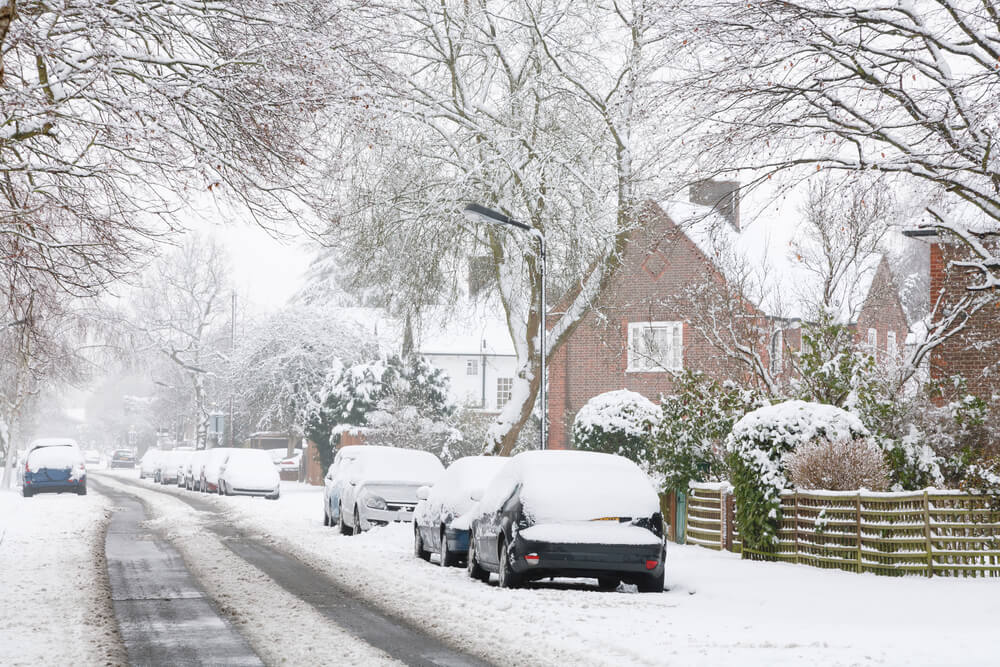Storms, rain and snow can cause transport chaos and building damage in the UK. Now that we’re heading towards the dead of winter, it is still not too late to protect your investment property against the ravages of the elements.
Here are some tips and suggestions for catching up with those winterproofing measures:
What your tenants say
- there is one winterproofing measure that may be easily overlooked, but comes completely free of charge – just talk to your tenants about any issues they want to raise as the weather gets colder;
- your conversation might bring to light problems that can be nipped in the bud before they become a major issue, with the potential for causing damage to your property if it is unaddressed – this could include things such as condensation;
- educate your tenants on how to care for the property during the winter. Encourage them to report any maintenance issues promptly, such as leaks or heating problems. Providing them with a winter maintenance checklist can also help keep your investment property in good shape.
Insulation
- when it’s cold outside, of course, you want to keep it warm inside – and to make the most of the energy you and your tenants consume doing just that, you need to insulate the building well;
- insulation repays itself in two ways – it helps prevents pipes freezing and the inevitable escape of water when they burst, but your tenants will also thank you for the reduction in energy bills by keeping inside more of the heat generated;
- proper insulation is the cornerstone of winterproofing your property. Insulation helps to maintain a comfortable temperature, reduce energy costs, and prevent heat loss. Insulate the walls, roof, and floors to create a thermal barrier that keeps the cold out and the warmth in. This investment can save you money on heating bills and make your property more attractive to tenants.
Semi-heated spaces
- don’t overlook spaces that you keep semi-heated – in common areas of your let property, for example;
- an ambient temperature of between 45ºF and 50 ºF (7.2ºC and 10ºC) is recommended;
Heaters and boilers
- to keep the heat in, you first need to generate it – and, as the landlord, providing a working heating system for your tenants in winter is a basic obligation;
- check that electric, gas, and open fires are working (ensuring that the required carbon monoxide detectors are functioning too) and have any central heating boiler professionally serviced;
- that is also the time to check the plumbing system more generally, making sure that valves and fittings are not leaking and that electrical controls and thermostats are working properly;
Keeping the water out
- keep the warmth in, but the water out;
- hopefully, you remembered to check the condition of the roof, guttering and other rainwater goods before the onset of the worst of winter’s storms;
- it’s not too late – but you or your tradesman will want to do it when the weather is relatively clement – so, check for dislodged slates or tiles on the roof and unblock gutters and downpipes to clear them of leaves and other debris that has been blown in on winter winds;
- basements or cellars are particularly vulnerable to water intrusion. If your property has a basement, ensure it is properly waterproofed. Consider applying a waterproofing paint or membrane to the walls and floors. Install a sump pump to prevent water build up during heavy rain and provide adequate drainage away from the property;
- proper landscaping can help manage water runoff. Make sure the land around your property slopes away from the foundation to encourage water to flow away from the building. Consider adding French drains or trenches to divert water from your property;
- if your property has below-grade windows or window wells, install covers to keep rainwater, debris, and snow from accumulating in these areas. This prevents water from seeping into your property through these openings.
Alarms
- smoke alarms are all the more important during the festive season, when candles and other naked flames may increase the risk of fire – so, make sure that the batteries are fully charged, and the devices are functioning;
- the same goes for any security systems you might have installed – they help to protect your investment property but also add to the sense of safety enjoyed by your tenants.
Prepare for Emergencies
Create an emergency plan that includes contact information for maintenance professionals and contractors. This will ensure that if a problem arises during the winter, you can address it promptly, preventing further damage and tenant discomfort.
Winterproofing your investment property is unlikely to take a great deal of time or money, but the work done in securing the premises and making them safer and healthier for your tenants is almost certain to pay dividends.
Further reading: Getting your property winter-ready and Winter-proof your garden.








